第36章 Chapter 27
In how many ways appearances exist, and what aids we should provide against them Appearances to us in four ways: for either things appear as they are; or they are not, and do not even appear to be; or they are, and do not appear to be; or they are not, and yet appear to be. Further, in all these cases to form a right judgement is the office of an educated man. But whatever it is that annoys us, to that we ought to apply a remedy. If the sophisms of Pyrrho and of the Academics are what annoys, we must apply the remedy to them. If it is the persuasion of appearances, by which some things appear to be good, when they are not good, let us seek a remedy for this. If it is habit which annoys us, we must try to seek aid against habit.
What aid then can we find against habit, The contrary habit. You hear the ignorant say: "That unfortunate person is dead: his father and mother are overpowered with sorrow; he was cut off by an untimely death and in a foreign land." Here the contrary way of speaking: tear yourself from these expressions: oppose to one habit the contrary habit; to sophistry oppose reason, and the exercise and discipline of reason; against persuasive appearances we ought to have manifest precognitions, cleared of all impurities and ready to hand.
When death appears an evil, we ought to have this rule in readiness, that it is fit to avoid evil things, and that death is a necessary thing. For what shall I do, and where shall I escape it? Suppose that I am not Sarpedon, the son of Zeus, nor able to speak in this noble way: "I will go and I am resolved either to behave bravely myself or to give to another the opportunity of doing so; if I cannot succeed in doing anything myself, I will not grudge another the doing of something noble." Suppose that it is above our power to act thus; is it not in our power to reason thus? Tell me where I can escape death: discover for me the country, show me the men to whom I must go, whom death does not visit. Discover to me a charm against death. If I have not one, what do you wish me to do? I cannot escape from death. Shall I not escape from the fear of death, but shall I die lamenting and trembling? For the origin of perturbation is this, to wish for something, and that this should not happen. Therefore if I am able to change externals according to my wish, I change them; but if I cannot, I am ready to tear out the eyes of him who hinders me. For the nature of man is not to endure to be deprived of the good, and not to endure the falling into the evil. Then, at last, when I am neither able to change circumstances nor to tear out the eyes of him who hinders me, I sit down and groan, and abuse whom I can, Zeus and the rest of the gods. For if they do not care for me, what are they to me? "Yes, but you will be an impious man." In what respect then will it be worse for me than it is now? To sum up, remember this that unless piety and your interest be in the same thing, piety cannot be maintained in any man. Do not these things seem necessary?
Let the followers of Pyrrho and the Academics come and make their objections.
For I, as to my part, have no leisure for these disputes, nor am I able to undertake the defense of common consent. If I had a suit even about a bit of land, I would call in another to defend my interests. With what evidence then am I satisfied? With that which belongs to the matter in hand. How indeed perception is effected, whether through the whole body or any part, perhaps I cannot explain: for both opinions perplex me. But that you and I are not the same, I know with perfect certainty. "How do you know it?" When I intend to swallow anything, I never carry it to your b month, but to my own. When I intend to take bread, I never lay hold of a broom, but I always go to the bread as to a mark. And you yourselves who take away the evidence of the senses, do you act otherwise? Who among you, when he intended to enter a bath, ever went into a mill?
What then? Ought we not with all our power to hold to this also, the maintaining of general opinion, and fortifying ourselves against the arguments which are directed against it? Who denies that we ought to do this?
Well, he should do it who is able, who has leisure for it; but as to him who trembles and is perturbed and is inwardly broken in heart, he must employ his time better on something else.